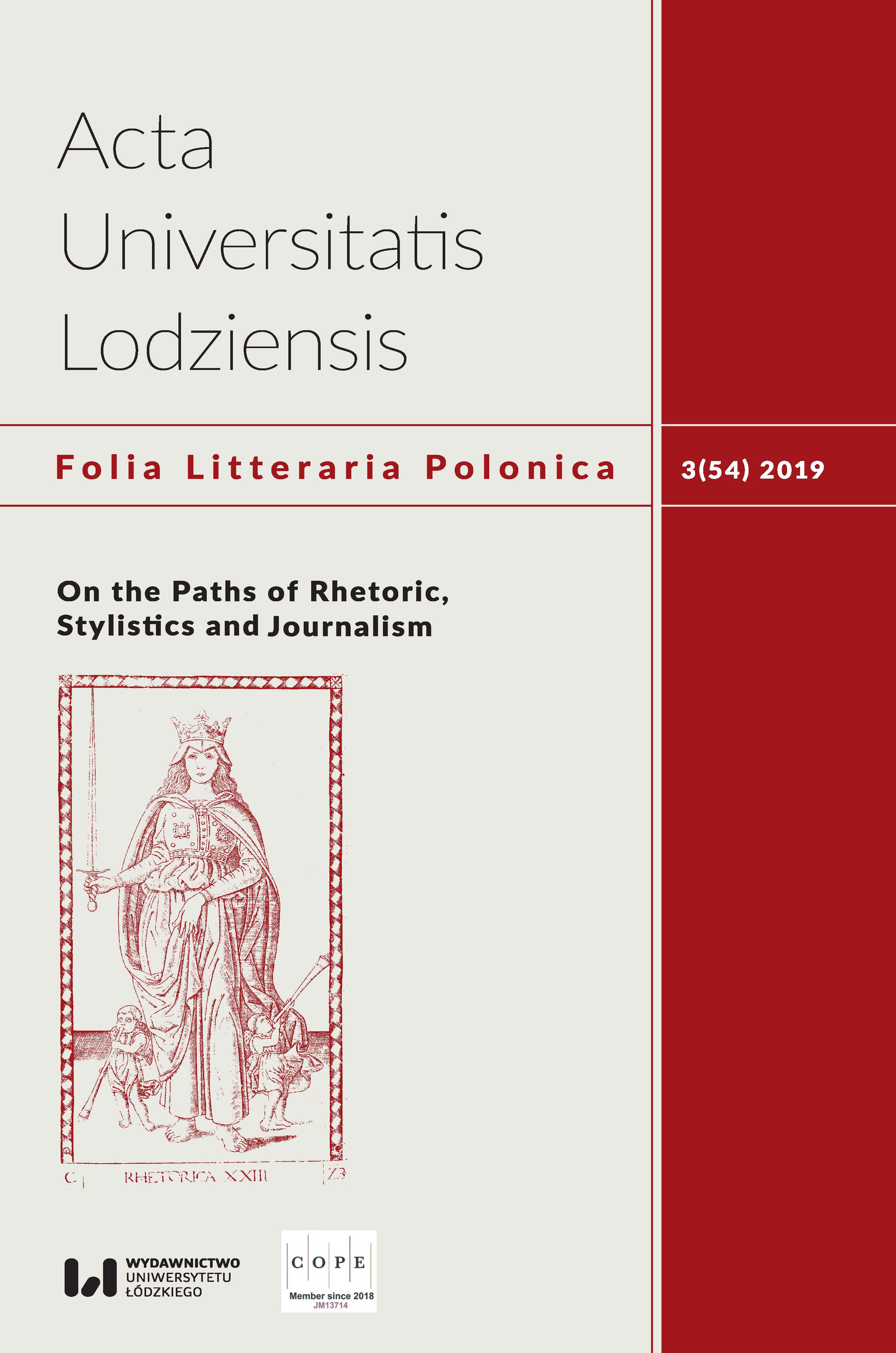„Genethliacon” Barbarze Bogołębskiej, czyli o potrzebie świętowania urodzin i jubileuszy
DOI:
https://doi.org/10.18778/1505-9057.54.02Słowa kluczowe:
genethliacon, tradycja, jubileusz, gatunekAbstrakt
W najpopularniejszych polskich słownikach terminów literackich, które opisują nawet gatunki dawno wymarłe i jednostkowe np. dramatu japońskiego czy indyjskiego, nie ma podstawowych informacji o gatunku obecnym w literaturze europejskiej (i nie tylko) przez co najmniej 23 wieki aż po dziś dzień. Genethliakon jest gatunkiem potwierdzonym od czasów Kallimacha (III w. p.n.e), który uświetnia narodziny lub rocznicę urodzin; czasami o charakterze lirycznym, dramatycznym lub retorycznym, obecnie nadal uprawianym w wielu językach świata (zgodnie z prastarą tradycją również po łacinie). Artykuł opisuje zarys rozwoju tego gatunku w tradycji europejskiej. Pierwsze piosenki urodzinowe, najczęściej odwołując się do konotacji Apollińskich, łączyły narodziny człowieka ze światłem i poezją. Co jest szczególnie interesujące, podstawowe cechy „genów” genethliakonu nie uległy w ciągu wieków znaczącym zmianom. Świętowanie narodzin, rocznic lub innych jubileuszy wciąż kojarzy się z życzeniami, ofiarowaniem prezentów, w tym tworzonej na tę okoliczność poezji. Być może warto zachować tak piękne tradycje, dając komuś taki samodzielnie napisany genethliakon jak np. ... Genetliacon Barbarae Bogołębskae dedicatum.
Pobrania
Bibliografia
Anthologia Graeca (Anthologia Palatina), Hrsg. H. Beckby, Heimeran Verlag, Munich 1965.
Google Scholar
Bowerman H.C., “The Birthday as a Commonplace of Roman Elegy”, The Classical Journal 1917, Vol. 12, No. 5, pp. 310–318.
Google Scholar
Cesareo E., Il carme natalizio nella poesia latina, Orfani Guerra, Palermo 1929.
Google Scholar
Der neue Pauly. Enzyklopädie der Antike. Das klassische Altertum und seine Rezeptionsgeschichte, Hrsg. H. Cancik, H. Schneider, vol. 2, J.B. Metzler Verlag, Stuttgart 1996–2010.
Google Scholar
Frontisi-Ducroux F., “Oko, wzrok, spojrzenie – kilka greckich wyobrażeń”, [in:] Antropologia antyku greckiego, P. Majewski, L. Trzcionkowski, W. Lengauer (eds.), Wydawnictwa Uniwersytetu Warszawskiego, Warszawa 2011, pp. 422–431.
Google Scholar
Gaj B., Genethliakon – pieśń ku czci życia, Wydawnictwo Uniwersytetu Kardynała Stefana Wyszyńskiego, Warszawa 2018.
Google Scholar
Luck G., The Latin Love Elegy, Methuen, London 1959.
Google Scholar
Morawski K., Zarys literatury rzymskiej, PAU, Warszawa 1922.
Google Scholar
Morhof G., Polyhistor, sive de auctorum notitiaet rerum commentarii, quibus praeterea varia ad omnes disciplinas Consilia et subsydia proponuntur, Sumptibus Petri Böckmanni, Lubecae 1688.
Google Scholar
Nadolski B., Imieniny i urodziny w tradycji chrześcijańskiej Europy, Wydawnictwo Święty Wojciech, Poznań 2007, p. 15.
Google Scholar
Radke A.E., Iubila natalicia vel antithreni (contra Threnos Iohannis Cochanovii), Fundacja Nauki i Kultury na Śląsku, Opoliae 2009.
Google Scholar
Radke A.E., Lanx satura memorabilium Anni MMXI, Fundacja Nauki i Kultury na Śląsku, Opoliae 2012.
Google Scholar
Sadowski W., Litania i poezja. Na materiale literatury polskiej od XI do XXI wieku, Wydawnictwa Uniwersytetu Warszawskiego, Warszawa 2011.
Google Scholar
Słownik rodzajów i gatunków literackich, G. Gazda, S. Tynecka-Makowska (eds.), Universitas, Kraków 2006.
Google Scholar
Słownik rodzajów i gatunków literackich, G. Gazda (ed.), Wydawnictwo Naukowe PWN, Warszawa 2012.
Google Scholar
Tibullus, Elegie miłosne, trans., introduction and commentary A. Arndt, A. Ibek (ed.), Wydawnictwo Homini, Kraków 2015.
Google Scholar
van der Vliet J., Studia Critica in Dionysii Halicarnassensis Opera rhetorica, Lugduni Batavorum, Van der Hoek, Leiden 1874.
Google Scholar
Διονυσίου Άλικαρνασέως Τά ῥητορικά, opera Friderici Sylburgii Veterensis, Francofurdi 1586.
Google Scholar
Pobrania
Opublikowane
Jak cytować
Numer
Dział
Licencja

Utwór dostępny jest na licencji Creative Commons Uznanie autorstwa – Użycie niekomercyjne – Bez utworów zależnych 4.0 Międzynarodowe.











